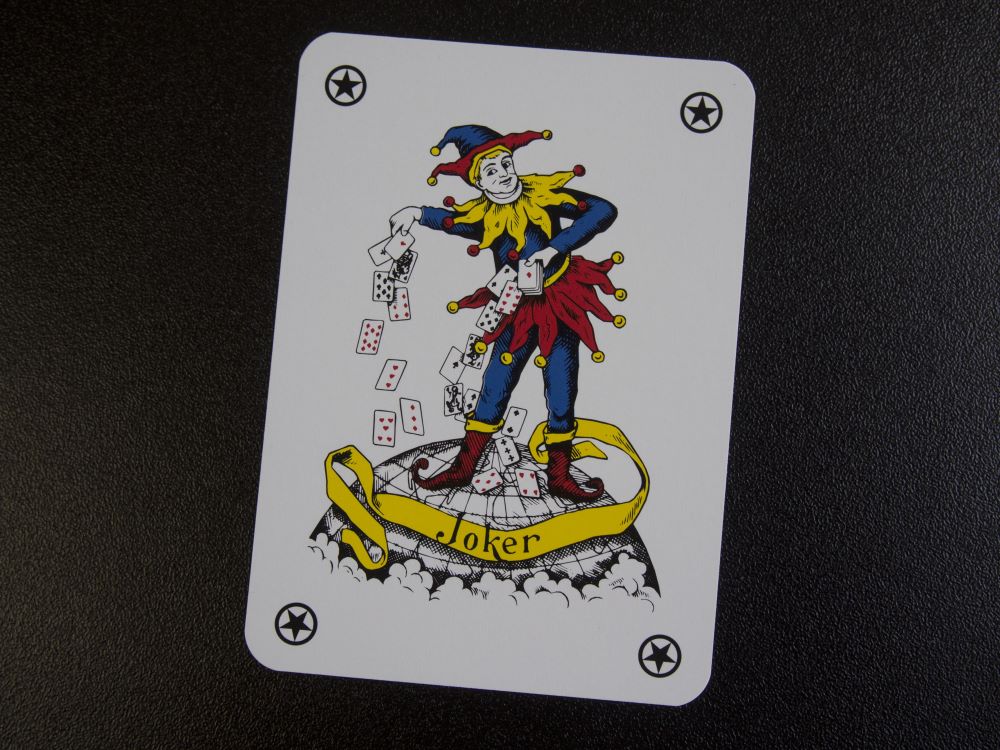
(Pixabay/Gina Janosch)
Admit it: Even if we groan at April Fools' Day jokes and shake our heads over the antics of Puck, jester to the fairy king in Shakespeare's "A Midsummer Night's Dream," and Bre'r Rabbit in the American South, most of us love stories about the trickster-hero. We share that fascination with cultures all over the world: My Navajo friends had a love-hate relationship with Coyote, my Chinese friends with the Monkey King, and Indigenous Northwest Canadians with Raven. Tricksters are fun and agents of change.
I had trickster-heroes in my own life — mostly uncles, but one sister-aunt, too.
I grew up knowing that in Navajo families, the oldest brother of a child's mother (pshidá'i') had special responsibilities toward the child. Because my dad had died in World War II, some of my uncles felt that responsibility, and I learned a lot from them. It seemed that my uncles' real responsibilities were to take me on rock hunts or archaeological digs, teach me how to ride horses, or to go panning for gold in old ghost towns.
Most of all, I loved their stories. Since we lived out in the American Southwest — West Texas and New Mexico — many of the stories involved rude frontier humor and practical jokes. (You should stop reading if you just want an edifying Christian story.)
Most uncle stories had a common thread: They had been tricked in some way or had done the trickery themselves. Two uncle stories come to mind.
Advertisement
Uncle Bob, a cattleman, came upon some sheepherders who had set up camp on his New Mexico ranch. He threatened that if they were not gone the next day, he would run over their tent with his truck. He returned the next day, and, sure enough, there was the tent, though it had been moved over a few yards.
Uncle Bob gunned his engine and roared toward the tent. He hit it with a loud crash, but the damage was to the truck: The sheepherders had moved the tent and pitched it over a huge boulder. Uncle Bob thought this was hysterically funny and enjoyed telling that story for the rest of his life.
My Uncle Huron changed trains on a long journey and had a lengthy wait in a little rural town in West Texas. He spied a local fellow and asked what there was to do in that town. The guy asked if he liked watermelons. And what Southern kid does not? His fellow soon-to-be criminal warned him that the farmer who owned the patch was quick on the trigger with his shotgun, so they would have to be careful when helping themselves.
They crawled into the watermelon patch, nervously peeking up now and then through the leaves to watch for an irate farmer with a shotgun, but eventually, they swiped a juicy melon, scurried away, and sat in a ditch to share it. Congratulating each other, they parted the best of friends. But when my uncle told the story to the train stationmaster, he learned that his fellow thief was the very same trigger-happy farmer who owned the patch.
One of my family's favorite acquaintances was a frontier doctor, Doc D, in Chama, New Mexico. They loved to laugh over the story about the friends of an old gold miner who reported that they found their friend dead. They called for Doc, who came to examine him. But Doc D refused to pronounce him dead right away without performing a "medical test." You see, the old miner was known for bending his elbow too much —frontier talk for drinking a few too many alcoholic beverages.
Doc got a short piece of board, put it on the chest of the alleged corpse, and balanced a sealed bottle of whiskey on the board.
"Now," he said, "if we come back in the morning and the seal on that whiskey is unbroken, then I will pronounce him dead."
When, alas, the patient was pronounced dead the next day, the same friends irreverently buried him in a round grave "so the devil couldn't trap him in a corner."
My uncles would just howl over that story, which as a kid I always thought was more of a male kind of humor.
Or maybe it wasn't a guy thing; maybe it was a Southwest thing. My aunt was a Catholic sister in Texas (in a religious order I will not name). The convent's milk cow died in the back shed one night. The Irish mother superior's eyes twinkled as she said she thought she knew how to dispose of the cow's body and called an undertaker who had been bugging her to let him perform a Catholic funeral.
"We have had a death here at the convent," she told him, and soon, he was at the convent door with black hat in hand and a mournful, sympathetic face, saying, "I have come for the body." The novice who answered the door but who was not in on the joke screamed for the superior, who solemnly directed the undertaker out to the shed. The sisters said he never again begged them for a Catholic funeral.
Trickster-heroes usually have a lesson to teach, even if the lesson is nothing other than: "Lighten up, laugh at yourself." There's a good book called Jesus the Holy Fool, and don't forget that St. Paul says in 1 Corinthians 4:10 that we are "fools for Christ." So do have a happy April Fools' Day.
I'll admit it: I just needed an excuse for writing for the sheer fun of it, as do many of our columnists. If you are a sister or an associate/oblate and you have a story or a reflection that is begging to be told (whether it is serious or not), send it to me at mmorek@ncronline.org. Even if you don't have any relatives from West Texas.







